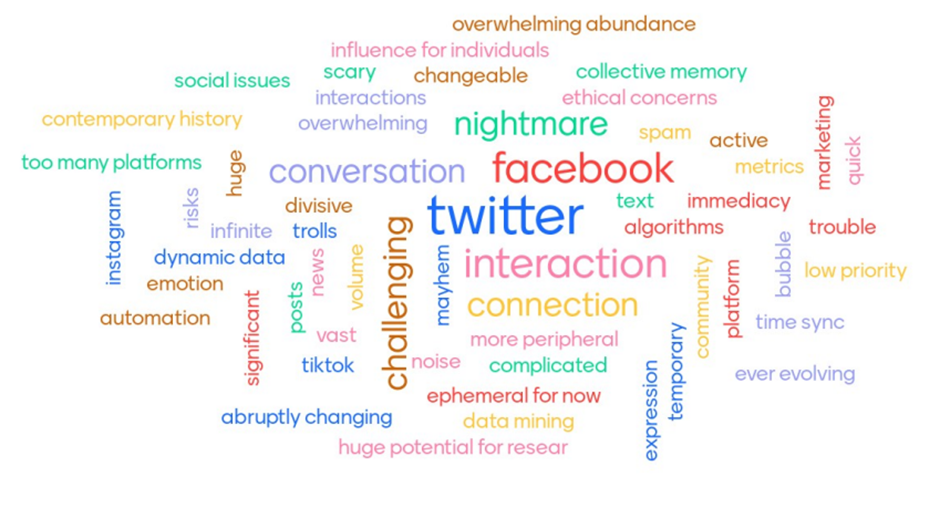Blog
Unless otherwise stated, content is shared under CC-BY-NC Licence
Gaza Conflict, January 2024
The DPC is not alone in recognizing and responding to the pain and distress of civilians caught in the violent conflict in Gaza, both Israeli and Palestinian. We have watched with compassion and horror the growing humanitarian crises and the many personal tragedies which have unfolded. We condemn atrocities whoever has committed them, and we are moved by scenes of unimaginable suffering to call for a complete cessation of violence.
The DPC's mandate – a sustainable future for our digital assets – compels us to have a particular concern to ensure the preservation of the digital cultural and scientific record. We are therefore profoundly distressed by reports of the destruction of the Central Archives of Gaza, of the main public library of Gaza, of the displacement of staff who manage and preserve the cultural and scientific heritage of the region, and of the suffering inflicted on them and their families.
Drawing on our own mandate, we add our voice to those of ICA, IFLA, UNESCO, ICOM and others to reiterate to all parties the terms of the 1954 Hague Convention for the Protection of Cultural Property in the Event of Armed Conflict and its two Protocols. These documents make plain that cultural heritage, including the digital record, is irreplaceable. Therefore the spaces and institutions associated with cultural property must not become a theatre of war, and the professionals who safeguard it must be afforded the full protection of international law.
Knowing also that peace, justice and truth are aligned, we celebrate those who create and preserve the digital record of our turbulent times. Insofar as it is in our power, we extend to them our full professional support and recognition.
Museums and Galleries Working Group - a year condensed
At the end of January 2023 the DPC contacted its Members to find out who would be interested in joining a new DPC Working Group for Museums and Galleries. We had a lot of interest - in fact even from Members who we weren’t aware were looking after collections of this nature. The group now has members from Australia, USA, UK and the Netherlands.
We held our first meeting in March 2023 and have met for an hour every other month since. Though we only advertise our meetings to those who are signed up for the group, we are keen that learnings from our discussions are more broadly shared with the wider digital preservation community. This blog post intends to do just that by summarizing the activities of our first year.
DPC Members: Have your say!
Happy New Year DPC Members! We're looking forward to another packed 12 months of learning and sharing digital preservation, so here's how to have your say and connect with other members this year:
DP Clinic: What are we going to do about Social Media?

It’s been just over a year since Elon Musk took over control of X (formerly Twitter), and the major changes that he has made to this popular social media platform have been hard to miss – especially for any organization hoping to archive and preserve posts. So for the last DP Clinic of 2023, a one-hour focussed discussion forum that is open to all, we thought it might be interesting to revisit the whole topic by exploring the question: “What are we going to do about Social Media?”
Continuous improvement of DPC RAM - have your say!
Back in 2019 the DPC released a new maturity model for digital preservation as part of a project we were working on with the UK’s Nuclear Decommissioning Authority. We called it our Rapid Assessment Model (DPC RAM) and we have been really pleased to see how widely used it has been across the digital preservation community. We reviewed RAM in 2021 and moved it to version 2 (read about what changed in RAM version 2 here). After another few years we think it is due for revision again.
Digital Directions – providing direction and reflection
Amy Ibbotson is Collection Management Archivist (Digital), Digital Archive Team, at Queensland State Archives. She attended the NEDCC Digital Directions 2023 Conference with support from the DPC Career Development Fund, which is funded by DPC Supporters.
Thanks to the DPC Career Development Fund I was able to attend the NEDCC online Digital Directions Conference. While the conference was not time-zone friendly for those of us residing ‘Down Under’ (2am wake up thank you very much!), the early starts soon proved to be worth the effort.
Musings on the iPres 2023 Panel, “Policies, Risks and Strategies: A File Format Debate”
Taryn Ellis is Digital Preservation Technical Analyst at State Library of South Australia, a member of National and State Libraries Australia (NSLA). She attended the iPRES 2023 Conference with support from the DPC Career Development Fund, which is funded by DPC Supporters.
As a relative newcomer to the field of digital preservation (so much to learn, so much to do!) I was keen to attend the iPRES 2023 Panel, “Policies, Risks and Strategies: A File Format Debate” chaired by Sam Alloing from the National Library of the Netherlands (KBNL).
Coda and Canon: World Digital Preservation Day 2023
William Kilbride is Executive Director at the Digital Preservation Coalition
- Coda: a passage that brings a piece or a movement to an end.
- Canon: a theme that is repeated and imitated and built upon by other instruments with a time delay, creating a layered effect.
World Digital Preservation Day 2023 adopted a musical turn of phrase with the theme ‘A Concerted Effort’, emphasizing the need for collaboration and partnership to achieve a shared goal. As the saying goes, ‘No one can whistle a symphony, it takes a whole orchestra to play it’. It might be phrased less elegantly: if you’re doing digital preservation on your own, you’re doing it wrong.
In musical terms this blog post is the coda which brings our celebrations to a close. It’s too early for me to take stock of all the different initiatives and outputs which have been shared over the course of the last 36 (ish) hours. I only have space for a few items which caught my eye so a very limited perspective. But here are a few things that, if you didn’t already know about, are worth holding on to:
My year of being a ‘First timer’ with the DPC
Julienne Pascoe is a Digital Archivist for Library and Archives Canada.
Digital Preservation is a collaborative effort, one that benefits from a variety of perspectives, expertise, and multifaceted participation. As a Digital Archivist at Library and Archives Canada (LAC), I work closely with my team in our section, Digital Integration, as well as colleagues in the Digital Preservation section, to perform a variety of tasks and services in ensuring that digital records are transferred, assessed, and preserved for sustainable access in the future. The stewardship of our digital legacy would not be possible without a collaborative, concerted effort with my colleagues who contain invaluable, diverse expertise and perspectives that combine to research and devise strategies for tackling the many nuanced digital preservation challenges. This collaborative effort to ensure continued access to our digital legacy extends to (and relies upon) the community that we are a part of, the digital preservation community, and it is this subject that I would like to discuss in my blog post today. More specifically I would like to discuss my experience as a ‘first-timer’ with the DPC this year, and the value that such a network brings to my role as a digital preservation practitioner.
Working in Concert: The Digital Preservation Community Symphony
Nance McGovern is Associate for Digital Preservation Practice and Instruction at Global Archivist LLC and a DPC Fellow
Digital preservation at its best is a collaborative sport. As always, the theme for World Digital Preservation Day (WDPD) is timely and important.
Collaboration has been an important part of digital practice for me since I started preserving digital content in 1986 at the Center for Electronic Records at the U.S. National Archives. We regularly welcomed visitors from all over who were interested in hearing about our program and in sharing what they were working on with us. An open source approach – sharing, using, and contributing back – contributes to the sustainability of good practice for digital preservation. Welcoming visitors – virtually and in-person – is a relatively easy opportunity for organizations engaged in digital preservation to contribute and to be informed.
























































































































































